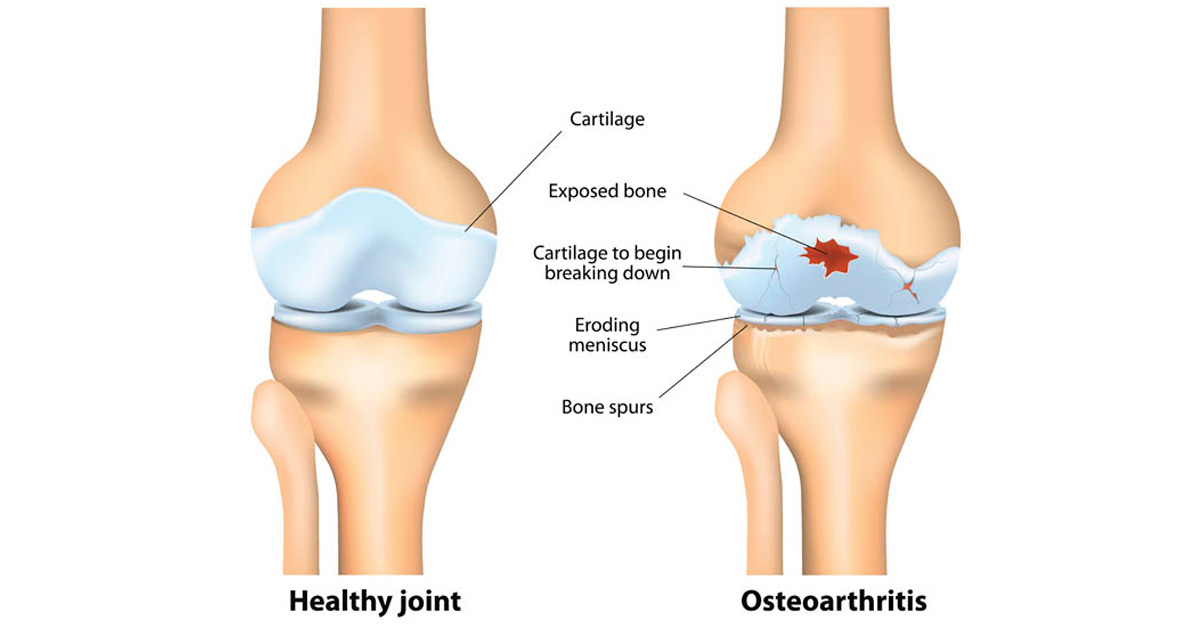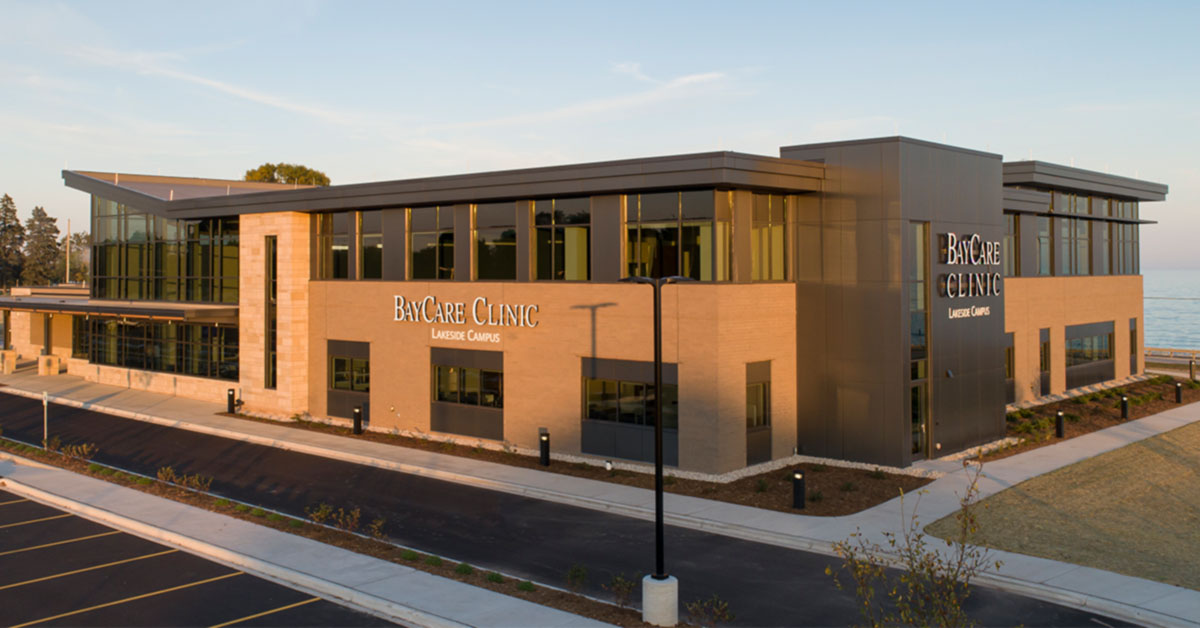Knee Replacement Surgery
Orthopedics & Sports Medicine
Knee replacement surgery can ease pain, improve mobility and restore knee function
A healthy joint has a layer of pristine cartilage that breaks down with time, causing osteoarthritis which results in less joint space and breakdown of cartilage. As cartilage wears down, it causes pain, swelling and dysfunction of a previously health joint.
Our goal is to create individualized care plans to reduce pain, improve mobility, reduce the likelihood of further injury and return people to their normal activities as quickly and safely as possible.

We offer a range of procedures to treat osteoarthritic knees
Total knee replacement
A total knee replacement surgery involves removing all parts of the knee that are impacted by osteoarthritis and replacing it with durable prosthetic components made of metal and plastic. The advances made with joint replacement surgery allow it to be done with smaller incisions that are tissue sparing, which speeds recovery. The goal of knee replacement surgery is to restore desired quality of life as safely and quickly as possible. There are various knee replacement products available and your surgeon will decide which to use, taking material and design into consideration.
Post-operatively, innovative pain management techniques are used such as pre-operative nerve block procedures, non-narcotic pain medication as well as narcotic pain medication, if needed. Physical therapy is used pre- and post-operatively to manage expectations and return to baseline activities in a safe and efficient manner.
Partial knee replacement or knee resurfacing
Partial knee replacement surgery, or knee resurfacing, is a minimally invasive procedure in which an orthopedic surgeon replaces only one part of the knee joint. Bone, cartilage and ligaments in the healthy part of the knee are preserved. It offers improved mobility and better natural motion than for those who have total knee replacement surgery. The benefits of knee resurfacing also include less pain and faster recovery times.
In partial knee replacement surgery, only one compartment of the knee impacted by osteoarthritis is replaced with durable prosthetic components made of metal and plastic. The remaining bone, cartilage and ligaments in the healthy parts of the knee are preserved. Only patients with osteoarthritis in one compartment are considered candidates for this surgery. Your surgeon will determine if you are a candidate and the type of implant that will be used. In comparison to total joint replacement surgery, the recovery allows for a faster recovery and sooner restoration of desired quality of life.
Questions about knee replacement surgery
After knee replacement surgery, is it normal for my knee to look larger or be slightly warmer than my other knee?
It is common for a post-operative knee to be larger or slightly warmer to the touch than the other knee, which has not ever or recently had joint replacement surgery. It is the body's natural response to surgery to present a little swelling and warmth for up to a year after surgery.
Is it normal to have numbness along the outer part of the incision after knee replacement surgery?
It is common to develop some numbness or change in sensation over the outer part of the knee after surgery. Incisions that are made directly over the front of the knee may cut across the sensory nerves to the outer part of the knee. Usually after 4 to 6 months, much of the skin sensation will return however, permanent loss of sensation may occur in some cases.
I have occasional clicking or clunking in the knee after knee replacement surgery. Is this normal?
The metal and plastic components of a knee replacement will separate slightly with gravity. When swinging the knee to walk, a clicking sound may be heard as the pieces come into contact which should not be painful. This can be normal and does not mean the components are loose or broken.
How long will my knee replacement implant last?
The lifespan of a knee replacement implant depends on many factors, including:
- The physical condition of the person receiving the implant
- Activity level demands
- The patient’s weight
- The accuracy of implant placement during surgery
With current prosthetic component design, implants can last 20-30 years in optimal conditions. Because many people who have knee replacement surgery are older, most implants will last a lifetime however, this is not a guarantee. Artificial knee replacements are strong and durable but not more so than a natural, healthy knee joint. Prosthetic knee components can wear out or become loose, which can require revision surgery.
Will the knee replacement implant set off metal detectors at airports?
Yes, you may be given an implant card with your surgery. This card will not speed up your screening when going through airport security. Allow an extra ten to 15 minutes for airport security personnel to use a hand-held metal detector to assess you.







